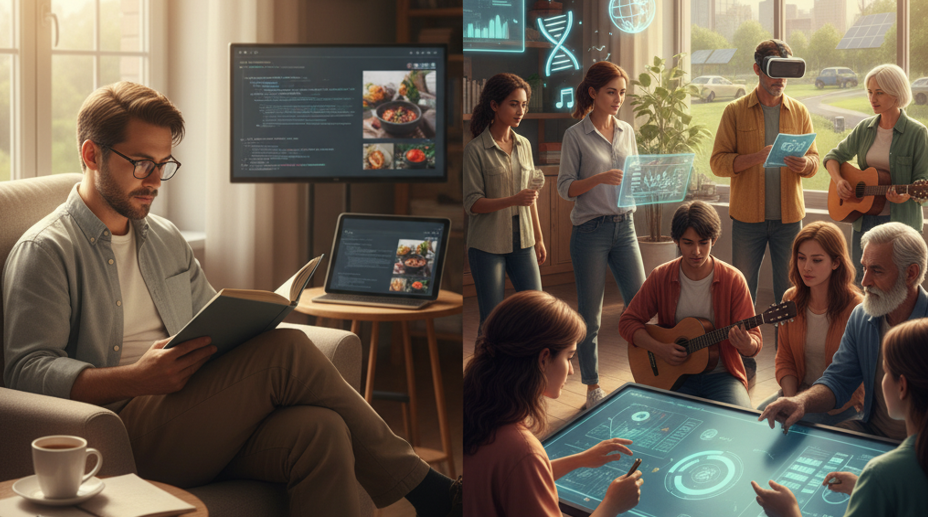Lifelong Learning in 2025: Why Staying Curious Matters More Than Ever
Lifelong learning—this idea of continuously picking up new skills or knowledge across your life—is hardly new. But somehow in 2025, it feels both more urgent and more accessible than ever before. Maybe it’s the speed of change around us, the sheer volume of information, or just an old-fashioned desire to keep growing. Whatever the reason, picking up where school left off isn’t just for “students” anymore. It’s a part of daily life for a lot of people, myself included, even if the path isn’t always straight or perfectly planned.
Why Lifelong Learning Is Still Worth the Effort
To be honest, I sometimes wonder if it’s exhausting to always have to keep up with new tech, trends, or ways of thinking. But the flip side is clear: those who stay curious don’t just keep pace—they often find new opportunities or fresh perspectives that others miss. Lifelong learning helps with adaptability, mental sharpness, and sometimes even deeper satisfaction or confidence. A friend recently told me that learning a new language in her 40s made her feel “reborn” in a way she hadn’t expected.
Plus, the notion that you “finish” learning once you leave school? That’s an old story. In today’s world, change is the only constant. Whether you’re pivoting careers, exploring hobbies, or just keeping your brain engaged, every bit of new knowledge feels like a small win—an investment that pays off in unexpected ways.
How People Actually Learn These Days
Gone are the days when learning meant dusty textbooks or formal classes alone. In 2025, learning often happens in snippets—through podcasts, quick tutorials, videos, or interactive apps. Social media channels sometimes double as informal classrooms, communities form around shared interests, and even gaming can teach skills.
Personally, I mix it up: some weeks, it’s a deep dive into a book; others, a few YouTube videos or a handful of TED talks. Sometimes I join online courses; other times, it’s just chatting with someone more experienced. This patchwork approach feels more manageable, if a bit scattered, but it works.
Challenges and Realities
Of course, not everything about lifelong learning is smooth. Time is the biggest hurdle—work, family, and other demands always seem to crowd in. Motivation can wane, or the overwhelm of where to start becomes a paralyzing hurdle. I’ve started dozens of courses or hobbies that peter out after a few weeks. There’s also the tricky balancing act of staying up to date without falling into endless cycles of catching up.
And then there’s the question of quality and depth. It’s easy to swim in surface-level info, but harder to find real expertise or meaningful practice. Sometimes, you have to accept that “just enough” learning might be all you have time for—and that’s okay.
Tips for Making Lifelong Learning Work for You
- Be curious, not perfect: Let your interests guide you, without feeling like you have to master everything.
- Set small, realistic goals: Maybe just one new concept or skill each month, rather than trying to overhaul everything.
- Find a community: Learning with others keeps motivation alive—online forums, local clubs, or study groups can help.
- Mix formats: Books, podcasts, videos, hands-on practice—switching it up keeps things fresh.
- Reflect on your progress: Journaling or discussions help turn new info into usable knowledge.
A Personal Note
I have to admit, my own lifelong learning journey is a bit zigzagged. Some weeks, I’m voracious; others, I barely scrape by. But I’ve learned to celebrate the small wins—finally mastering that Excel formula, trying a new recipe without disaster, or picking up a phrase in a foreign language. It’s less about being an expert and more about staying engaged and open.
Final Thoughts: Lifelong Learning as a Way of Life
In 2025, lifelong learning isn’t just a buzzword; it’s a practical necessity and a gift. It’s not about achieving perfection or ticking boxes but about staying curious, nimble, and human in a world that keeps shifting beneath our feet. If you’re feeling daunted, start small, go slow, and accept that learning, like life, is a journey—a messy, sometimes frustrating, but always rewarding one.


